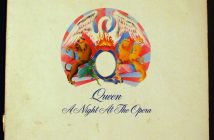A Clockwork Orange may be immediately recalled in our collective memory as Stanley Kubrick’s unashamedly graphic glorification of teenage ‘ultraviolence’, accompanied by Malcolm McDowell’s hauntingly insipid rendition of Singin’ in the Rain that sends shivers up the spine.
But before Kubrick’s Alex DeLarge there was Anthony Burgess’ Alex. Fifty five years ago today, on 1st March 1962, Burgess set his sociopathic brainchild loose on an equally abhorrent society. The world which surrounded and in turn created the notorious antihero is at once both bizarrely fantastical and terrifyingly plausible; Burgess’ linguistic prowess allows the reader to detach from the graphic descriptions of violence by presenting the entire novel through Alex’s teenage Nadsat talk- a strange amalgamation of cockney-rhyming slang, Traveller tongues and Russian.
Whilst Burgess’ dystopia at once seems to revel in Alex’s, and his fellow droog’s or gang members, rampaging destruction his obsessive delight in classical musical, particularly Beethoven, and the way in which it inspires his impulses seems to bring his completely alien identity into question. It seems synonymous, although hyperbolised, with the rise of teenage rebellion fuelled by Led Zeppelin, the Beatles and the Rolling Stones which surrounded the book’s publication in 1962.
In light of this, it is slightly less shocking that Burgess’ book went on to inspire youth throughout the last fifty five years, and was held high as a symbol against governmental corruption and a signifier of rebellion. The novel inspired several lyrics and songs in punk band, the Addicts’ repertoire, through which the confusing adoration of an antihero spread into the punk scene.
The novel, first abhorred, insidiously became a cult classic, seeping from one generation of youth to the next, equalled reviled and beloved. Alex is situated between the government and those who oppose it, both equally eager to use and throw Alex aside for their own gain, leaving the reader to question who at all in this God-forsaken world is good?
In a final chapter, famously cut from the American edition of the book, Alex, returned to his gang culture, spies a former droog and feels the stirring desires to begin a family. Much like the teenagers who heralded him as a misguided symbol of eternal youth, Burgess defines Alex by his inescapable humanity, and the reality that he, like all of his readers, must grow up one day and leave his beloved ultraviolence behind.
Check out Burgess discussing his work below:




